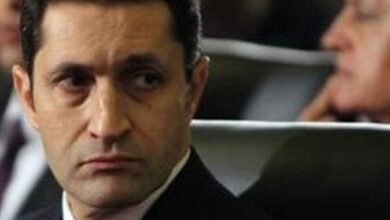The Muslim Brotherhood on Tuesday rejected for the first time the practice of trying civilians in military courts. The announcement, which came a week after the Brotherhood rejected plans by the ruling Supreme Council of the Armed Forces (SCAF) to issue a constitutional declaration, signifies an escalation in the Brotherhood’s criticism of SCAF policies. The constitutional declaration was to outline rules for choosing the parliamentary panel in charge of drafting Egypt's new constitution.
Brotherhood Deputy Supreme Guide Mahmoud Ezzat told reporters that referring civilians for military trials is an “unconstitutional procedure,” adding that such trials violate the United Nations' Universal Declaration of Human Rights.
Military trials lack guarantees of due process, he claimed.
Ezzat called for dialogue and respect for public freedoms safeguarded by law.
Presidential hopeful Mohamed ElBaradei sounded a similar message on Tuesday, claiming that the road to democracy is eroding due to military trials, the failure to protect peaceful protests, the rejection of international election monitoring, and the refusal to give expatriates the ability to vote.
On his Twitter account, ElBaradei demanded clear leadership and vision from the SCAF. He also called for a detailed political timetable for the period running up to elections.
Rulings by military courts against 10,000 civilians over the past six months has alarmed the Brotherhood, which is now calling for retrying them before civilian courts, Ezzat said.
The military judiciary is qualified to handle violations by military personnel, Ezzat said, adding that military trials should have become a thing of the past following Mubarak’s ouster.
Meanwhile, “master criminals” who killed hundreds, stole the nation’s wealth and humiliated the people are receiving civil trials with all the guarantees of fairness, he said, in reference to figures of Mubarak’s regime.
Translated from the Arabic Edition




